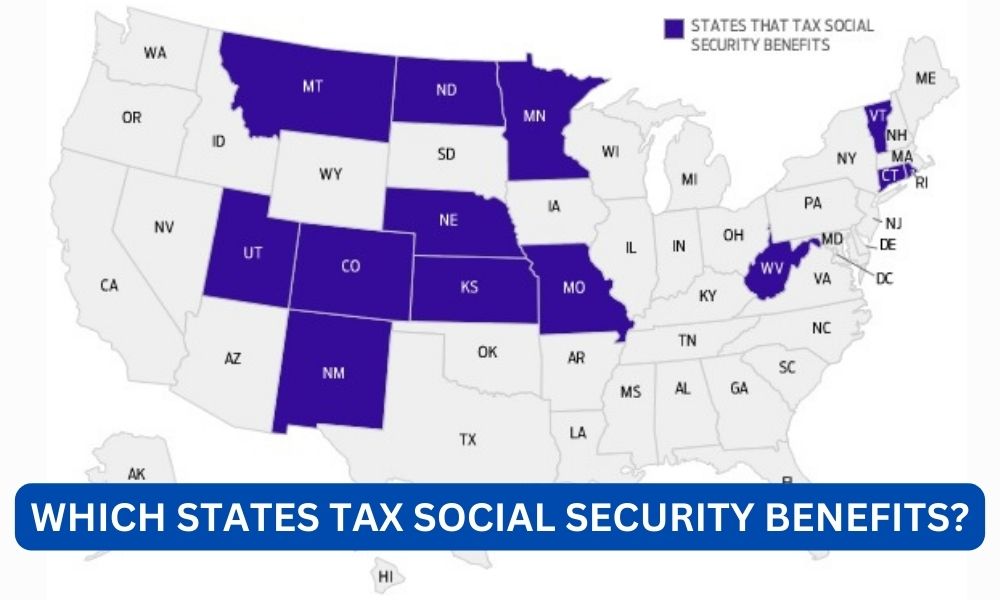Social security benefits are a crucial source of income for many retired individuals in the United States. These benefits are provided by the federal government and are meant to supplement the income of retirees, disabled individuals, and their families. However, not all states treat social security benefits the same way when it comes to taxation. Some states fully exempt these benefits from taxation, while others tax them to varying degrees. In this article, we will explore which states tax social security benefits and the impact it has on retirees.
Contents
Background on Social Security Benefits
Social security benefits were first introduced in the United States in 1935 as part of the Social Security Act. The program was created to provide financial support to retirees, disabled individuals, and their families. It is funded through payroll taxes paid by employees and employers, as well as self-employed individuals. The benefits are based on an individual’s earnings history and are meant to replace a portion of their pre-retirement income.
According to the Social Security Administration, over 65 million people received social security benefits in 2020, with retired workers making up the majority of recipients. The average monthly benefit for retired workers was $1,544, which is a significant portion of their income for many retirees.
Read:Does money in the bank affect social security retirement benefits?Which States Tax Social Security Benefits?
Currently, there are 13 states that tax social security benefits to some extent. These states are Colorado, Connecticut, Kansas, Minnesota, Missouri, Montana, Nebraska, New Mexico, North Dakota, Rhode Island, Utah, Vermont, and West Virginia. The remaining 37 states and the District of Columbia do not tax social security benefits.
It is worth noting that even within these 13 states, the taxation of social security benefits varies. Some states have a full exemption for all social security benefits, while others have a partial exemption or only tax benefits above a certain income threshold. Let’s take a closer look at how each of these states taxes social security benefits.
Colorado
Colorado is one of the states that partially taxes social security benefits. The state offers a deduction of up to $24,000 for retirees who are 65 years or older. This deduction applies to all types of retirement income, including social security benefits. However, if a retiree’s income exceeds the deduction amount, they will be subject to state income tax on their social security benefits.
Connecticut
Connecticut is another state that partially taxes social security benefits. The state offers a deduction of up to 75% of social security benefits for individuals with a federal adjusted gross income (AGI) of less than $75,000. For those with an AGI between $75,000 and $100,000, the deduction is reduced to 50%. Any individual with an AGI above $100,000 is not eligible for the deduction and will be subject to state income tax on their social security benefits.
Read:Is the death benefit taxable?Kansas
Kansas has a unique system for taxing social security benefits. The state offers a deduction of up to $75,000 for individuals with an AGI of less than $75,000. However, this deduction is reduced by $1 for every $1 of income above $75,000. This means that individuals with an AGI of $90,000 or more will not be eligible for the deduction and will be subject to state income tax on their social security benefits.
Minnesota
Minnesota is one of the few states that fully taxes social security benefits. The state does not offer any deductions or exemptions for social security benefits, and they are subject to the state’s income tax rates. However, the state does have a tax credit for low-income seniors, which can help offset the tax on social security benefits.
Missouri
Missouri offers a partial exemption for social security benefits. The state allows individuals with an AGI of less than $85,000 to deduct up to 50% of their social security benefits from their state income tax. For those with an AGI above $85,000, the deduction is reduced to 15%. Any individual with an AGI above $100,000 is not eligible for the deduction and will be subject to state income tax on their social security benefits.
Read:What is a benefit period for medicareMontana
Montana is another state that fully taxes social security benefits. The state does not offer any deductions or exemptions for social security benefits, and they are subject to the state’s income tax rates. However, the state does have a tax credit for low-income seniors, which can help offset the tax on social security benefits.
Nebraska
Nebraska offers a partial exemption for social security benefits. The state allows individuals with an AGI of less than $58,000 to deduct up to 50% of their social security benefits from their state income tax. For those with an AGI above $58,000, the deduction is reduced to 15%. Any individual with an AGI above $75,000 is not eligible for the deduction and will be subject to state income tax on their social security benefits.
New Mexico
New Mexico is another state that fully taxes social security benefits. The state does not offer any deductions or exemptions for social security benefits, and they are subject to the state’s income tax rates. However, the state does have a tax credit for low-income seniors, which can help offset the tax on social security benefits.
North Dakota
North Dakota offers a partial exemption for social security benefits. The state allows individuals with an AGI of less than $50,000 to deduct up to 50% of their social security benefits from their state income tax. For those with an AGI above $50,000, the deduction is reduced to 15%. Any individual with an AGI above $100,000 is not eligible for the deduction and will be subject to state income tax on their social security benefits.
Rhode Island
Rhode Island is another state that fully taxes social security benefits. The state does not offer any deductions or exemptions for social security benefits, and they are subject to the state’s income tax rates. However, the state does have a tax credit for low-income seniors, which can help offset the tax on social security benefits.
Utah
Utah offers a partial exemption for social security benefits. The state allows individuals with an AGI of less than $75,000 to deduct up to 50% of their social security benefits from their state income tax. For those with an AGI above $75,000, the deduction is reduced to 15%. Any individual with an AGI above $100,000 is not eligible for the deduction and will be subject to state income tax on their social security benefits.
Vermont
Vermont is another state that fully taxes social security benefits. The state does not offer any deductions or exemptions for social security benefits, and they are subject to the state’s income tax rates. However, the state does have a tax credit for low-income seniors, which can help offset the tax on social security benefits.
West Virginia
West Virginia offers a partial exemption for social security benefits. The state allows individuals with an AGI of less than $50,000 to deduct up to 50% of their social security benefits from their state income tax. For those with an AGI above $50,000, the deduction is reduced to 15%. Any individual with an AGI above $100,000 is not eligible for the deduction and will be subject to state income tax on their social security benefits.
Impact on Retirees
The taxation of social security benefits can have a significant impact on retirees, especially those living on a fixed income. For individuals living in states that fully tax social security benefits, this can mean a significant reduction in their monthly income. This can make it challenging for retirees to cover their living expenses and maintain their standard of living.
Even in states that offer a partial exemption or deduction for social security benefits, the impact can still be felt. Retirees may have to pay state income tax on a portion of their benefits, reducing their overall income. This can be especially burdensome for low-income seniors who rely heavily on social security benefits for their retirement income.
Furthermore, the taxation of social security benefits can also discourage individuals from retiring in certain states. Retirees may choose to relocate to states that do not tax social security benefits to maximize their retirement income. This can have an impact on the economy of states that tax social security benefits, as they may see a decline in their retiree population.
Conclusion:
In conclusion, 13 states currently tax social security benefits to some extent. These states have varying systems for taxing these benefits, with some offering full exemptions and others only taxing benefits above a certain income threshold. The taxation of social security benefits can have a significant impact on retirees, reducing their overall income and potentially discouraging them from retiring in certain states. As the population of retirees continues to grow, it is essential for states to carefully consider the impact of taxing social security benefits and the potential consequences it may have on their residents.









